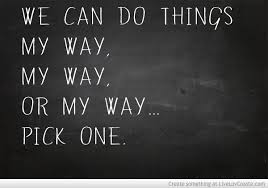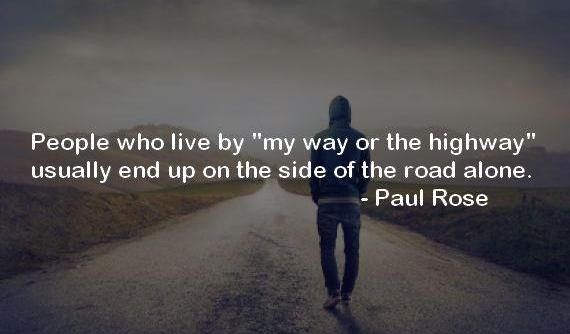
You’ve probably heard stories or encountered firsthand K9 trainers and instructors who believe there’s only one way to do things – their way. And, if you have not heard or encountered such and/or find it hard to believe this could occur today in modern K9 policing, I will assure you these people do exist.
I always admired and respected members of the Los Angeles County Sheriff’s Department who provided training for me and others throughout the years related to SWAT and K9. One of their most common intros during training started with something similar to “We’re going to show you a way to perform this task. It’s one way to do it, it’s not necessarily the only way. It’s worked for us, but it might not work for you.” And, I know for a fact that many members of those LASD teams did things a little differently from their counterparts but maintained a consistency in overall performance and mission accomplishment. As a team (both SWAT and K9), we used a lot of what they taught us – but we didn’t use everything and sometimes tweaked a tactic or technique to better address the way we did business.
The ability to pick and choose what works best for you and your dog can sometimes be foreign and overwhelming, particularly for new handlers. When you are first learning, I believe it’s important to follow the directions and instructions you are given without looking elsewhere. As you develop your basic skills and become more comfortable in your role, it’s beneficial to look around and stay abreast of new developments, techniques and tactics. Maybe you see something you like – maybe you don’t like it. However, I think we will all agree that maintaining an open mind to learning and trying new things is very important. Maybe it works, maybe it doesn’t.

More importantly, I think it’s incumbent upon a trainer to encourage further development by allowing handlers to attend outside training (hands-on and classroom) being conducted by those who might have slightly differing tactics, techniques or philosophies. A good trainer will do so – they don’t know everything – and they are often rewarded when other trainers are delivering similar messages and supporting information. I have known and known of a few trainers who forbad their handlers from attending training other than their own.
I recall a supervisor who stormed out of classroom training session recently when he disagreed with a technique being suggested by the instructor. I was present and didn’t agree with that technique either – I wouldn’t do it or suggest it, others might – but the other information being shared was good overall. Pick and choose.
Many years ago, I recall seeing a group of handlers at outside training and when I approached them, I asked “Does your trainer know you are here?” because they were not allowed to attend outside training. They reluctantly replied “No.” However, they were open to the training, participated well and there were a few things we suggested that they admitted “will not happen” when they get back even though they liked it. That’s okay.

If you restrict your training experiences and train with someone who dictates “my way or the highway,” you need to explore options and insist upon an open discussion with that trainer and your supervisor to address the issue as you may become one-dimensional, stagnated and you may get in trouble because you are limiting your growth and development.
Take care, be safe and make every day a training day…
Bill Lewis II
This “reason” was first shared on February 10, 2016, and later published in the USPCA “Canine Courier” (Spring 2022).

“Trouble” isn’t always related to incidents or predicaments that directly result in lawsuits, claims or discipline. Often times, our actions or inactions that are missed, deliberately overlooked or downplayed may lead to nothing or can later lead to mistakes or bad incidents with minimal to serious repercussions. A reason we get in trouble can be minor or simple at first glance – or even serious – but a combination of these factors can often have disastrous consequences.
These “reasons” are provided periodically as a collection in-progress based on actual incidents and real attitudes as well as feedback received at HITS, the CNCA Training Institute, and the “Canine Liability 360” classes. As Gordon Graham says, “We haven’t found new ways to get in trouble.” So, as the list progresses, you may or may not read something familiar to you that you have personally experienced or seen others encounter. If you encountered or heard about it, did you learn from it?
